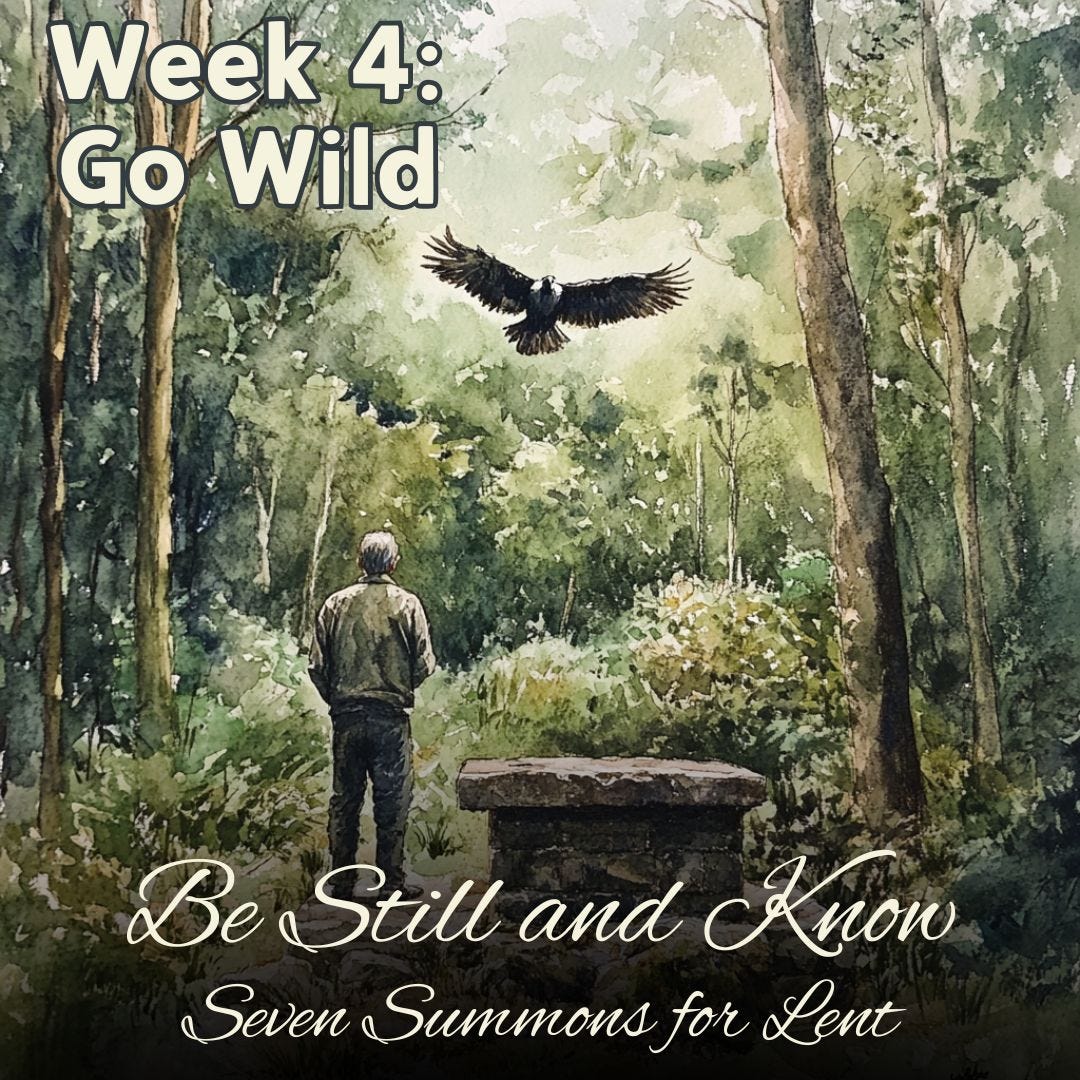In the temptation story, Mark presents us with a man in an arid wilderness, without food or water. For forty days. It’s a grueling vision quest, yet Mark tells it in one verse.
And he was in the wilderness forty days, tempted by Satan;
and he was with the wild beasts;
and the angels ministered to him.
In her remarkable book, Church of the Wild, Victoria Loorz contends that the punctuation of that verse is wrong. The error, she says, is that semicolon after “beasts.” There were of course no punctuations in the Greek text, so some translator just put one there—but Loorz thinks it’s a tiny mistake that erases the essential power of the wilderness. So she takes it out.
“He was with the wild animals and the angels, who ministered to him.”
What a difference a semicolon makes! Now we have the animals and the angels working together, serving Jesus. Gone is the line between the world of the wild, and the world of the angels. The wild beasts can be dangerous, yes—but everyone who follows the radical call of God will face them. In the paradox of faith, our contending with the beasts becomes an impossible blessing. We don’t need the angel brigade from heaven to come down and rescue us from the creatures of the desert. The word angel means “messenger,” and the animals are angels too, messengers too.
I love this even better: in this reading, the angels come from the same place as the wild beasts. They emerge from the landscape along with the desert fauna—the invisible and visible together. Jesus isn’t saved from the wilderness, he is saved by it. Because it is this place of angels and beasts that confronts us with the glory and terror of our world, of our lives. The wilderness is where we meet something beautiful and dreadful—and so much of religion has been drained of its dread, it’s primal power.
That’s not just true of contemporary religion; Jesus faced the same domestication of faith in his day. Which is why, straight after his baptism, the Spirit “drives” him into the wild.
At some point, we are ready for beauty and dread. We feel a desperate need to know and face the truth—about ourselves, about the world, about God, about everything we’ve been told is true. And then it feels as though something or Someone is driving us into the wild.
Next Reflection coming: Wednesday
Be Still and Know
Seven Summons for Lent
Stop Week One
Look Within Week Two
Turn, Turn Week Three
Go Wild Week Four
Be Still Week Five
Love Mercy Week Six
Dust, Arise Week Seven






‘In the paradox of faith, our contending with the beasts becomes an impossible blessing.’ Love that line. Everything positive in my life is a blessing from confronting the wild beasts.
We have been “civilized” to the extent that wilderness is frightening. It can be beautiful and life-giving if we embrace it with faith. Leaving the human-made realm for a spot of the natural world is one of the ways to get closer to the divine.